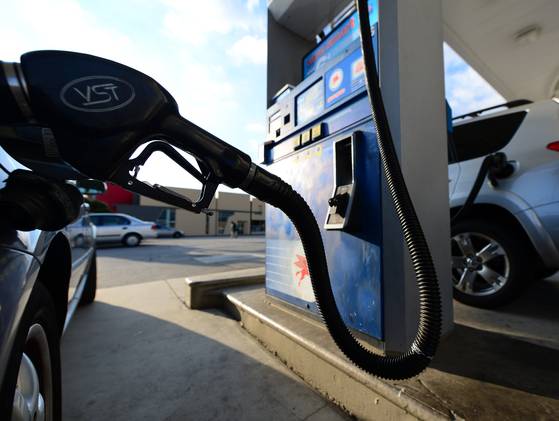High gas prices: What Obama, Romney didn't say
Politicians may not like to admit that they don't have much control over global oil prices.

11:57PM EDT October 17. 2012 - Can government lower gas prices? This question popped up Tuesday night during the second presidential debate, but neither President Obama nor former governor Mitt Romney directly answered it. Instead, they debated their energy policies, which analysts say have little immediate effect on prices at the pump.
The candidates talked about the need to expand domestic oil and gas production, boost energy efficiency and develop renewable energy.
What they didn't say is that U.S. gas prices are largely determined by something else: global crude oil prices, which depend on myriad factors such as economic sanctions on Iran, spare oil capacity in Saudi Arabia and auto use in China — factors over which they have little control.
"Politicians don't like to admit they don't have control over everything," says Daniel Weiss, an energy expert at the Center for American Progress Action Fund, a non-partisan advocacy group that favors a clean-energy agenda.
"A non-answer probably reflects the complexity of the issue," adds Branko Terzic, a former commissioner of the Federal Energy Regulatory Commission who now heads the Deloitte Center for Energy Solutions. He says prices also vary within the United States because of localized conditions such as oil supply, refinery capacity and transportation.
"High gasoline prices in California are due to a fire at a major oil refinery and a power failure — not a lack of oil," says Weiss, adding Romney's "drill, baby, drill" proposals may boost domestic supply but won't necessarily bring down gas prices. "Even though Canada produces nearly all of its oil, it too had high gasoline prices this year due to high worldwide oil prices."
Pain at the pump seems particularly peculiar this year, because the United States is not only producing more crude oil but also using less of it — leading to a steep drop in net oil imports since 2005.
Although U.S. production of oil and petroleum products has increased 20% since 2008, it was still only 11% of the world's supply last year and 53% of what the nation used, according to the U.S. Energy Information Administration. In other words, it's just not enough to sway global crude oil prices — and gas prices.
Yet high gas prices — averaging $3.76 for a gallon of regular nationwide but exceeding $4 in seven states, according to AAA — remain a potent pocketbook issue. Whenever they've surged this year, Romney has criticized Obama for them. In 2008, when he was running for president, Obama partly blamed then-president George Bush for that year's surge in prices.
"The reality is that presidents have very little to do with near-term fluctuations in gasoline prices," Frank Verrastro, director of the energy program at the Center for Strategic and International Studies, told a U.S. Senate panel earlier this year.
"High gas prices are bad for incumbents," Weiss says, because presidents have limited authority over them. He says they can urge, but not order, regulators to crack down on Wall Street speculators who inflate crude oil prices and can — in cases of extreme supply disruption — sell oil from the U.S. Strategic Petroleum Reserve.
During Tuesday's debate at Hofstra University in Hempstead, N.Y., Romney suggested Obama had more control.
"The proof of whether a strategy is working or not is what the price is that you're paying at the pump," Romney said, adding that gas prices would be lower if Obama's energy strategy worked.
"When the president took office, the price of gasoline here in Nassau County was about $1.86 a gallon. Now, it's $4 a gallon," Romney said, calling for an increase in domestic energy production.
Obama said gas prices were lower at the beginning of his administration because "the economy was on the verge of collapse." He said that "the most important thing we can do" to lower prices "is to make sure we control our own energy."
After citing the U.S. boom in oil, natural gas and coal production during his administration and his doubling of car fuel-efficiency standards, Obama said he's pushing for more renewable power and energy efficiency. "That's how we're going to reduce (oil) demand and that's what's going to keep gas prices lower."